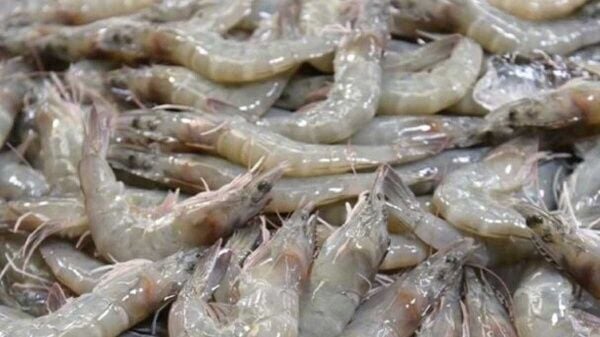Thailand imports shrimp from Ecuador amid local production crisis

Thailand, once the world’s leading shrimp exporter, now finds itself importing shrimp from Ecuador. Prime Minister Srettha Thavisin directed the Department of Fisheries to investigate and report back in the next Cabinet meeting.
The nation, which used to produce and export 600,000 tonnes of shrimp annually, now produces only 200,000 tonnes. This significant decline has necessitated the importation of shrimp, primarily from Ecuador, leading to a drop in Thai shrimp prices and severe financial hardship for local shrimp farmers.
The Thai premier mandated the Department of Fisheries, under the Ministry of Agriculture and Cooperatives, to urgently verify the reasons behind this decline and propose solutions to safeguard the interests of shrimp farmers.
Chai Wacharong, spokesperson for the Prime Minister’s Office, conveyed the prime minister’s orders. He emphasised that the Department of Fisheries must present its findings and suggested remedies at the next Cabinet meeting, which was scheduled for 1.30pm today, June 25, at the Government House. The urgency of the directive underscores the severity of the crisis faced by the shrimp farming community in Thailand.
The shrimp farming industry in Thailand has witnessed a dramatic shift over the past few years. Once a global leader, the country’s shrimp production has plummeted, causing a reliance on imports that has further destabilised local markets.
Farmers, who once thrived, now find themselves struggling to make ends meet. The importation of shrimp from Ecuador has been a double-edged sword while it ensures supply within the country, it has also driven down the prices of locally farmed shrimp, exacerbating the financial strain on Thai farmers.
Agricultural sustainability
PM Srettha’s directive to the Department of Fisheries reflects a broader concern for the agricultural sector’s sustainability and the livelihoods of those dependent on it. The investigation aims to uncover the root causes of the decline in shrimp production and to develop strategic measures to revive the industry. Possible factors could include environmental changes, disease outbreaks, and economic policies that have inadvertently affected local production.
The Department of Fisheries is expected to conduct a thorough analysis, taking into account various aspects such as farming practices, market dynamics, and international trade pressures. The findings will be critical in formulating policies that not only address the immediate crisis but also ensure long-term stability and growth for the shrimp farming sector.
In a separate statement, a representative from the shrimp farming community expressed hope that the government’s intervention would bring much-needed relief, reported KhaoSod.
“We have been facing unprecedented challenges. The import of shrimp from Ecuador has particularly hit us hard. We are hopeful that the government’s timely action will help us recover and sustain our livelihoods.”
Latest Thailand News
Follow The Thaiger on Google News:


























